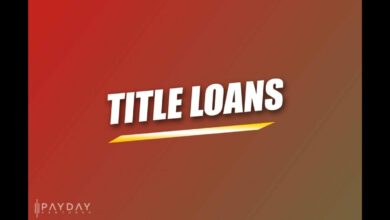Discover Home Equity Loan: A Complete Guide to Unlocking Your Home’s Value

For many homeowners, the property they live in is not just a place of comfort but also a valuable financial asset. One of the most effective ways to utilize this asset is through a home equity loan. When you begin to discover home equity loan options, you’ll find that it allows you to borrow against the equity built up in your home over time. Equity is the difference between your home’s current market value and the amount you still owe on your mortgage. By leveraging this equity, you can access significant funds to finance major expenses, consolidate debt, or invest in new opportunities. Unlike unsecured personal loans, home equity loans are secured, often offering lower interest rates and predictable repayment terms.
What Does It Mean to Discover Home Equity Loan Opportunities?
To discover home equity loan benefits is to understand the wide range of financial advantages it can provide. A home equity loan typically functions like a second mortgage, where you receive a lump sum upfront and repay it over a fixed term with regular monthly payments. This is especially useful for homeowners who prefer stability in repayment schedules. When compared with credit cards or personal loans, home equity loans usually carry much lower interest rates because they are backed by your property. This can translate into thousands of dollars in savings over the life of the loan.
How Home Equity Loans Work
When you start to discover home equity loan mechanics, it’s essential to grasp how lenders determine the amount you can borrow. Most lenders allow you to borrow up to 80–85% of your home’s appraised value, minus the remaining mortgage balance. For example, if your home is worth $300,000 and you owe $150,000, your equity is $150,000. If the lender allows borrowing up to 80%, you could potentially access $90,000 through a home equity loan. Once approved, you’ll receive this lump sum and repay it in equal installments over the agreed loan term, which can range from 5 to 30 years.
Advantages of Home Equity Loans
When you discover home equity loan advantages, you’ll notice several benefits that make them appealing:
- Lower Interest Rates: Because the loan is secured by your home, interest rates are generally much lower compared to personal loans or credit cards.
- Predictable Repayments: Fixed monthly payments provide financial stability and help with budgeting.
- Access to Large Sums: Depending on your home’s equity, you can secure a substantial amount of money at once.
- Potential Tax Benefits: In some cases, the interest paid on home equity loans may be tax-deductible if used for home improvements (consult a tax professional for details).
These benefits make home equity loans particularly attractive to homeowners who want financial flexibility without the high costs of unsecured borrowing.
Disadvantages and Risks
As you discover home equity loan options, it’s also crucial to consider the risks. Since the loan is secured by your home, failure to repay can result in foreclosure. Additionally, you’re increasing your debt load, which could impact your long-term financial security. Interest rates, while lower than unsecured loans, may still be higher than your original mortgage. Lastly, using the funds for nonessential purposes, such as vacations or luxury purchases, could create financial strain without adding long-term value.
Common Uses of Home Equity Loans
A significant part of the process when you discover home equity loan benefits is understanding their practical applications. Homeowners frequently use them for:
- Home Renovations: Financing improvements can increase property value while enhancing your living space.
- Debt Consolidation: Paying off high-interest debts such as credit cards with a lower-interest home equity loan can save money and simplify finances.
- Education Costs: Funding tuition or educational expenses can be more affordable with this type of loan.
- Emergency Expenses: Medical bills, unexpected repairs, or other emergencies can be managed effectively.
Using a home equity loan wisely can transform it into a powerful financial tool.
Home Equity Loan vs. Home Equity Line of Credit (HELOC)
When you discover home equity loan differences from other financial products, you’ll come across HELOCs. While a home equity loan provides a lump sum with fixed terms, a HELOC operates like a revolving credit line, allowing you to borrow as needed up to a certain limit. HELOCs often come with variable interest rates, which can lead to fluctuating monthly payments. Choosing between the two depends on your needs: if you want predictable payments for a one-time expense, a home equity loan is better. If you prefer ongoing access to funds, a HELOC might be more suitable.
Qualification Requirements
To discover home equity loan eligibility, you’ll need to meet certain lender requirements. Typically, lenders consider:
- Credit Score: A higher score increases your chances of approval and better interest rates.
- Debt-to-Income Ratio: Lenders want to ensure you can handle additional debt.
- Home Value and Equity: Sufficient equity is essential for loan approval.
- Income and Employment History: Stable earnings reassure lenders of your repayment ability.
Meeting these requirements strengthens your loan application and ensures better terms.
The Application Process
When you discover home equity loan application steps, you’ll notice they are similar to applying for a mortgage. The process usually includes:
- Researching Lenders: Compare multiple institutions to find the best rates and terms.
- Submitting Documentation: Provide proof of income, credit history, and property details.
- Home Appraisal: The lender will order an appraisal to determine your home’s value.
- Approval and Closing: Once approved, you’ll sign documents, and funds will be disbursed.
This process can take several weeks, but preparation helps streamline the experience.
How to Maximize the Benefits
To truly discover home equity loan potential, use the funds strategically. Consider investing in home improvements that raise property value, consolidating debts to save money on interest, or covering essential expenses like education or healthcare. Avoid using the loan for depreciating assets or luxury items that don’t improve your long-term financial position. Careful planning ensures you gain the most from your loan without jeopardizing your home or finances.
Alternatives to Home Equity Loans
As you discover home equity loan options, it’s wise to explore alternatives. These may include:
- Cash-Out Refinancing: Replaces your mortgage with a new one, providing cash from your equity.
- Personal Loans: Unsecured but often with higher interest rates.
- HELOCs: Flexible borrowing with variable rates.
Understanding all options helps you choose the best financial product for your circumstances.
Tips for Responsible Borrowing
Part of the journey to discover home equity loan wisdom is adopting responsible borrowing habits. Always borrow within your means, focusing on needs rather than wants. Create a repayment plan before borrowing, and stick to it to avoid financial strain. Shop around for competitive rates, and don’t rush into agreements without comparing multiple lenders. Being disciplined ensures your loan improves your financial position rather than creating new challenges.
Conclusion:
When you fully discover home equity loan opportunities, it becomes clear that they can be a powerful financial resource for homeowners. They offer low-interest borrowing, predictable repayment terms, and access to large sums of money. However, they also come with risks if mismanaged. By educating yourself, comparing lenders, and using funds wisely, you can turn your home’s equity into a tool that strengthens your financial future. For many homeowners, a home equity loan represents not just borrowed money but a pathway to greater financial flexibility and security.



